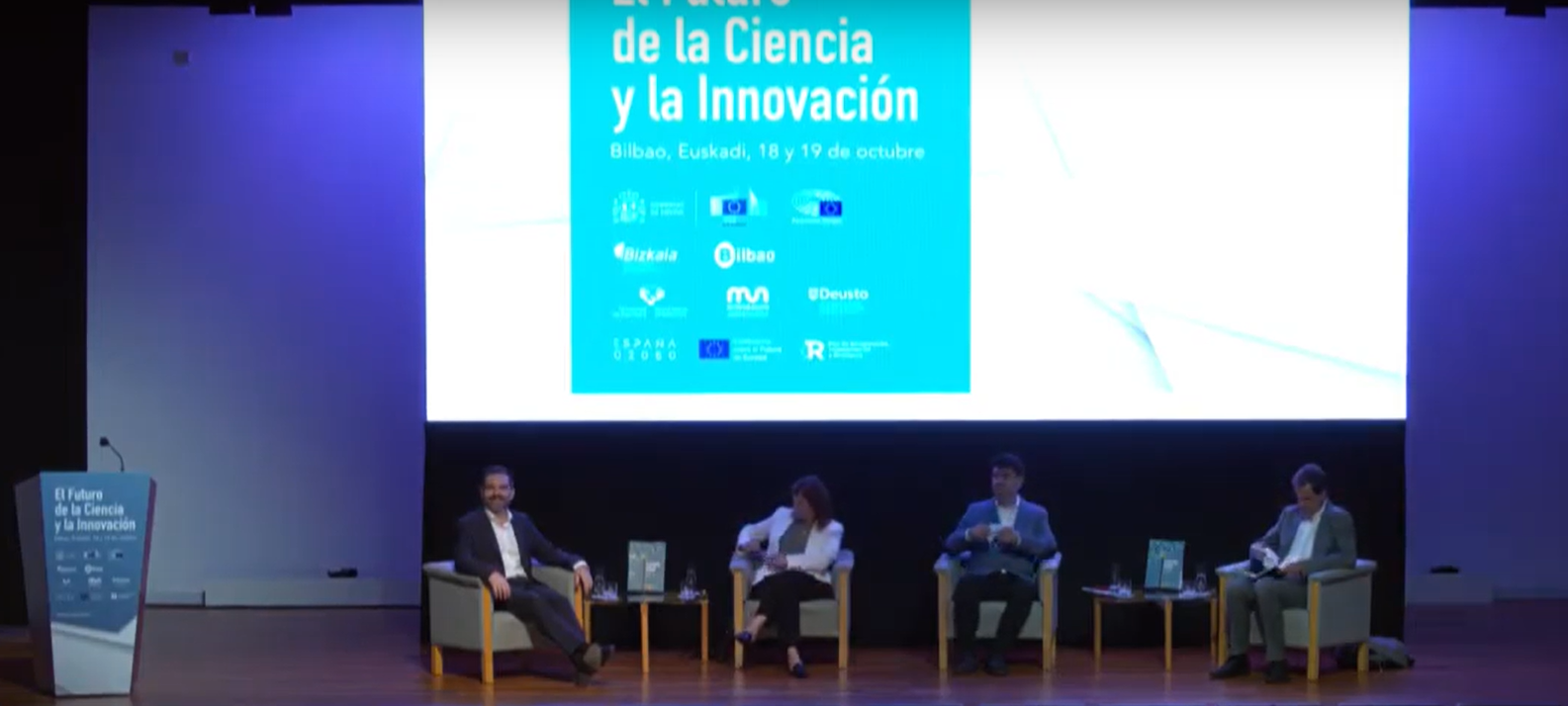
The future of science and innovation lies in a new science system free of unnecessary straitjackets and adapted to the designs of a new generation of researchers. This is one of the key messages offered yesterday by the guests at the round table "Is bureaucracy killing our creativity? The meeting was part of the Dialogues on the Future promoted by Spain2050, with the participation of Javier García Martínez, professor at the Rafael del Pino Foundation.
The government's foresight and strategy office, which leads the Spain2050 platform, is organising thematic dialogues. The most recent one, held in Bilbao on 18 and 19 October, focused on the future of science and innovation. Among the range of round-table discussions that took place, those dedicated to science funding and bureaucratic obstacles to research were particularly noteworthy.
The organisers did not beat around the bush. This is reflected in the round tables' own statements. Significant titles such as "Should we spend 4% of GDP on R&D?" or "Is bureaucracy killing our creativity?" speak clearly of the pragmatic nature of these meetings. The initiative is supported by the European Commission, the European Parliament and 70 other public institutions.
The morning session on the 18th featured the participation of María Blasco, Director of the CNIO and member of the Committee of Experts of the Rafael del Pino Foundation's Chair in Science and Society. Her round table discussion was devoted to the funding problems facing the scientific and research sector. An endemic problem for Spanish science, which grabs the headlines but masks the complexity of the problem. A complexity that came to the fore in the afternoon session. In the words of Luis Miller, moderator of the first afternoon round table, "the problem sometimes is not that there is a lack of money, but that we cannot spend it".
María José Gutiérrez, professor of economic analysis at the UPV/EHV warned of the existence of a "multilevel" bureaucracy, which especially affects universities and complicates the task of researchers. Jesús Marco, vice-president of Science, Research and Technology at the CSIC, called for a "revolution" rather than an "evolution".
Making science attractive
For Javier García, professor at the Rafael del Pino Foundation and coordinator of the report "10 technologies to boost Spain 2021" and the book España a Ciencia Cierta, published by the Gestión 2000 imprint of Planeta, the Gordian knot lies in education. "The big question is, how do we make a career in science attractive and eliminate bureaucracy," said the professor at the University of Alicante, who currently chairs the IUPAC and the Young Academy of Spain.
For his part, the vice-president of the CSIC highlighted the case of the fight against COVID and the exceptions that the health crisis has allowed in the regulation of research management. An example that deserves to be studied in order to find ways to overcome bureaucracy. "The key is to convince those who have to advise politicians, the people who end up touching the BOE.
María José Gutiérrez, on the other hand, presented the English system, in which funding is based on the suitability of the contracts and the research success demonstrated.
Javier García asked to think "30 years" ahead. The professor of the Rafael del Pino Foundation recalled that "we have lost 12,000 researchers since 2008 according to the OECD". The solution would involve a flexible recruitment system that would allow talent to be incorporated and prevent it from fleeing. In conclusion, he advocated avoiding "strange" manoeuvres through foundations and analysing the good practices that exist in countries in the rest of Europe, "which share European funding sources with us". "Let's ask ourselves what they are doing to attract talent and take advantage of this funding," said Javier García.


